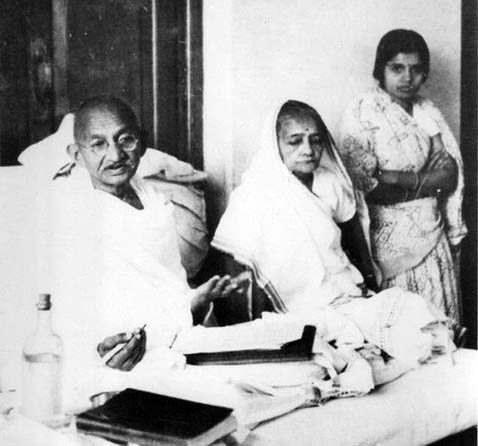Wednesday, March 11, 2015
Tuesday, March 10, 2015
Gandhi Journal Article-II: Gandhian Ethics of Fast-Nonviolence
Gandhian Ethics of Fast-Nonviolence
By By Maithili R. Gupte
Fasting is an institution as old as Adam. It has been resorted to for self-purification or for some ends noble as well as ignoble. Buddha, Jesus and Mohammed fasted so as to see God face to face. Ramchandra fasted for the sea to give way for his army of monkeys. Parvati fasted to secure Mahadev himself as her Lord and Master. In Gandhi's fast he follows these great examples, no doubt for ends much less noble than theirs. Even today this weapon of fasting used to fight against evils.
Non-violence is also old as human culture. Non-violence has occupies a pre-eminent position in Indian philosophy and religion. It has been the first among the five-fold virtues. Which form the essence of Hindu Ethics and are known by various names, such as pancayama, pancasila or panca-maha-vrata. Jainism placed it higher than truth (Satya). The Buddha identified it with universal compassion. It was regarded as equivalent to Dharma or the Moral Law - it was a necessary means to Moksa or salvation and vital part of the spiritual discipline prescribed by teachers of Yoga like Patanjali.
Now the question is - why does violence exist in us? Because we can't see ourselves as part of a universe, because we see ourselves as being separate. In that separation is violence. If we separate ourselves from everybody else, then of course, we have to fight for our own survival.
Non-violence is also old as human culture. Non-violence has occupies a pre-eminent position in Indian philosophy and religion. It has been the first among the five-fold virtues. Which form the essence of Hindu Ethics and are known by various names, such as pancayama, pancasila or panca-maha-vrata. Jainism placed it higher than truth (Satya). The Buddha identified it with universal compassion. It was regarded as equivalent to Dharma or the Moral Law - it was a necessary means to Moksa or salvation and vital part of the spiritual discipline prescribed by teachers of Yoga like Patanjali.
Now the question is - why does violence exist in us? Because we can't see ourselves as part of a universe, because we see ourselves as being separate. In that separation is violence. If we separate ourselves from everybody else, then of course, we have to fight for our own survival.
READ FULL ARTICLE
Monday, March 9, 2015
Sunday, March 8, 2015
Gandhi's ahimsa inspired Gujarati woman to study abroad in 1930
Gandhi's ahimsa inspired Gujarati woman to study abroad in 1930

When the country was struggling for its independence, female liberation was a far-fedged thought. Yet the courage imbued in Chandan Parekh Kalelkar by Mahatma Gandhi's resolve made her one of the first women from Kathiawad in the 1930s to earn a Master's degree abroad. (She got a Master's degree in sociology and psychology from Boston University.)
Chandan Kalelkar's daughter, Shailaja Parikh, says that on March 3, 1939, her mother experienced at first hand Bapu's commitment to his principles in the face of violence at one of his fasts in Rajkot. This experience transformed her mother into a woman of great courage, says Shailaja.
Chandan Kalelkar's daughter, Shailaja Parikh, says that on March 3, 1939, her mother experienced at first hand Bapu's commitment to his principles in the face of violence at one of his fasts in Rajkot. This experience transformed her mother into a woman of great courage, says Shailaja.
Subscribe to:
Comments (Atom)



